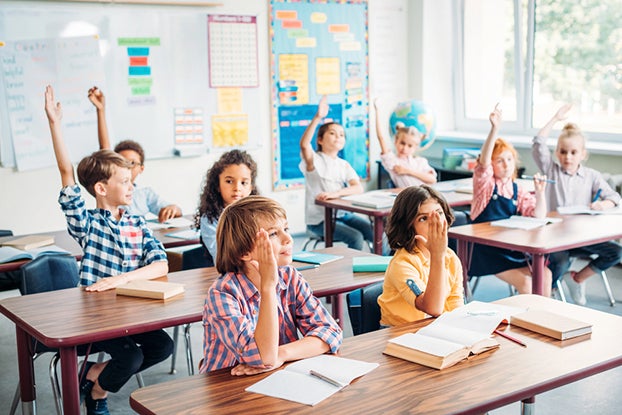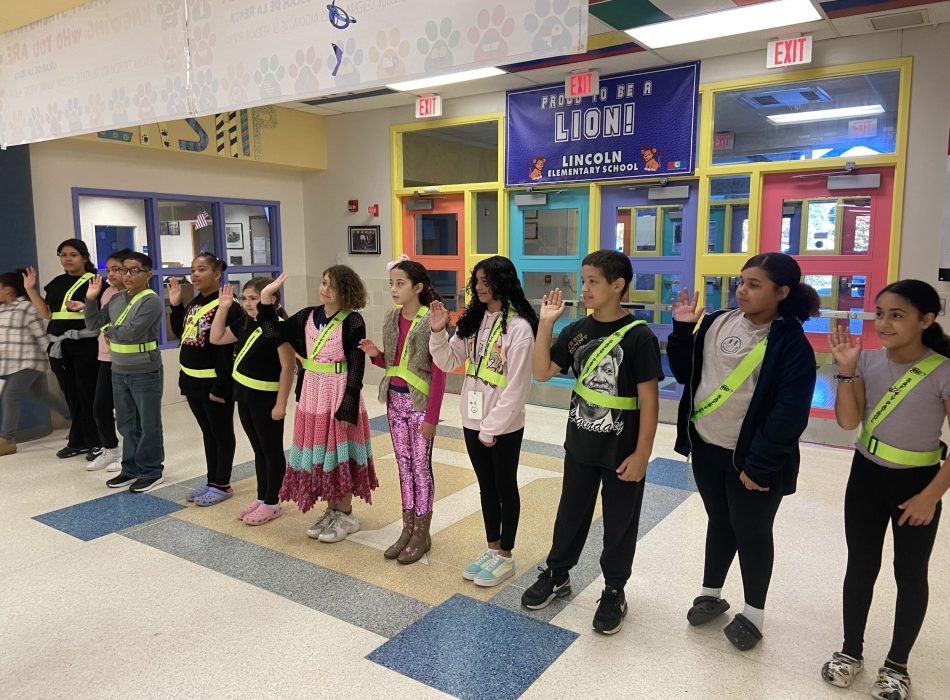Uncovering how Grade School transitions early learning to advanced studies
Wiki Article
Imaginative Understanding Activities in Kindergarten: Enhancing Skills Via Play and Communication
Creative understanding tasks in preschool act as fundamental experiences for young learners (Grade School). These activities motivate ability growth through spirited engagement and social communication. Children explore their imagination, improve communication, and find out useful social skills. Each experience adds to their growth in unique means. Understanding how these activities shape very early development exposes the profound impact of play in education and learning. What details components make these experiences so effective in nurturing well-rounded people?The Role of Play in Early Childhood Advancement
While numerous may undervalue the value of play, it offers as a basic component of early childhood development. With play, youngsters explore their environments, foster social abilities, and establish cognitive abilities. Engaging in unstructured tasks allows them to utilize their creative imagination, explore problem-solving, and enhance their critical reasoning skills. Moreover, play provides a risk-free area for emotional expression, enabling kids to browse their sensations and construct resilience.Furthermore, play encourages physical advancement as kids participate in activities that boost their electric motor abilities and sychronisation. Interaction with peers during playtime advertises team effort and communication, laying the groundwork for future partnerships. Grade School. Educators and parents acknowledge that play is not just an activity however an important aspect of knowing, shaping a child's ability to adjust and flourish in different circumstances. Inevitably, play enhances youngsters's lives, preparing them for the obstacles of the future while cultivating a long-lasting love for learning
Innovative Arts and Crafts: Stimulating Imagination
Imaginative arts and crafts play a considerable function in igniting youngsters's imaginations and boosting their innovative skills. These activities encourage self-expression through different tools, such as painting, drawing, and sculpting. By engaging in hands-on jobs, kids learn to control products, cultivating great electric motor abilities and hand-eye sychronisation.Creative arts give a platform for analytical and crucial reasoning, as youngsters check out different strategies and techniques to their developments. This expedition allows them to experiment, choose, and learn from their experiences.
Collaboration is an additional vital aspect, as kids frequently work with each other on group tasks, sharing resources and concepts. This communication not only develops social skills yet also supports a feeling of community. Eventually, imaginative arts and crafts serve as essential tools in a preschool setup, promoting cognitive, emotional, and social advancement while sparking the natural interest and imagination of young learners.
Interactive Storytelling: Structure Language Skills
Interactive storytelling works as an effective tool for building language abilities in kids, as it engages them in the narrative process and urges active engagement. Through storytelling sessions, kids are invited to listen, respond, and even add to the unraveling tale. This interactive style supports vocabulary growth by revealing them to brand-new words in context.As they get involved, children practice necessary interaction skills, such as articulation and expression. They learn to series events, recognize characters, and comprehend the plot, fostering essential thinking. Furthermore, interactive narration usually incorporates aesthetic help, sound effects, and props, which better improve engagement and understanding.
In addition, when youngsters share their own stories, they experience a sense of agency and creativity, reinforcing their language abilities in an encouraging atmosphere. Ultimately, interactive storytelling grows a love for language and literary works, establishing a solid foundation for their future academic success.
Hands-On Science Experiments: Urging Inquiry
Hands-on science experiments supply young learners with indispensable chances to inquire and check out about the world around them. Taking part in straightforward, interactive basics experiments permits kindergarteners to ask questions, make forecasts, and observe results firsthand. These tasks promote interest and foster a sense of wonder, motivating kids to check out the homes of materials, reactions, and all-natural sensations.Experiments such as planting seeds or blending baking soft drink and vinegar not just highlight clinical ideas but additionally enhance vital believing skills. Kids discover to document their observations, advertising literacy and numeracy as they determine, contrast, and document data. In addition, hands-on science cultivates a growth way of thinking, training strength as they browse challenges and pick up from errors.

Collaborative Games: Fostering Team Effort and Social Skills
Participating in collective video games supplies kindergarteners an unique platform to develop team effort and social abilities while developing on the inquiry-based learning promoted by hands-on science experiments (Grade School). These games encourage youngsters to collaborate toward common goals, promoting interaction and cooperation. As they browse different obstacles, they learn to share duties, work out roles, and deal with problems-- vital elements of effective teamworkWith structured activities such as group puzzles, relay races, or participating storytelling, children not just improve their social communications yet additionally reinforce their psychological intelligence. They get insights into compassion and support, finding out that each kid's payment is valuable. Additionally, these collective experiences promote a sense of neighborhood within the classroom, developing bonds that expand beyond private play. By incorporating joint games right into the educational program, teachers can lay the groundwork for important life skills that will certainly profit kids in their future instructional and social settings.
Frequently Asked Concerns
Just How Can Moms And Dads Assistance Creative Discovering at Home?
Parents can support imaginative discovering at home by supplying varied products, motivating expedition, taking part in creative play, asking open-ended inquiries, and fostering a secure atmosphere where youngsters do not hesitate to express their ideas and creative thinking.
What Materials Are Finest for Arts and Crafts Activities?
A variety of products enhance arts and crafts activities, including building and construction paper, scissors, glue, pens, paints, and recycled things. These sources inspire creativity and allow youngsters to discover their creativity via hands-on experiences.Just How Do Teachers Analyze Kid's Imagination?
Teachers evaluate children's creative thinking via observations, profiles useful site of job, and flexible projects that motivate self-expression. They assess analytic abilities, creativity, and willingness to experiment, providing understandings right into each kid's Visit Your URL unique creative growth and capacities.What Are Some Instances of Outdoor Creative Activities?

Just How Can Social Motifs Be Integrated Into Creative Discovering?
Social styles can be integrated into imaginative knowing by including varied stories, songs, art, and customs, encouraging children to explore and commemorate different backgrounds, cultivating inclusivity and understanding while enhancing their creative thinking and cognitive abilities.Kids explore their imagination, improve interaction, and find out valuable social abilities. With play, kids explore their environments, foster social skills, and create cognitive abilities. In addition, play urges physical advancement as children involve in tasks that boost their motor abilities and sychronisation. Imaginative arts and crafts play a significant function in stiring up kids's imaginations and improving their imaginative skills. Interactive narration offers as a powerful device for constructing language skills in young kids, as it involves them in the narrative process and urges energetic involvement.
Report this wiki page